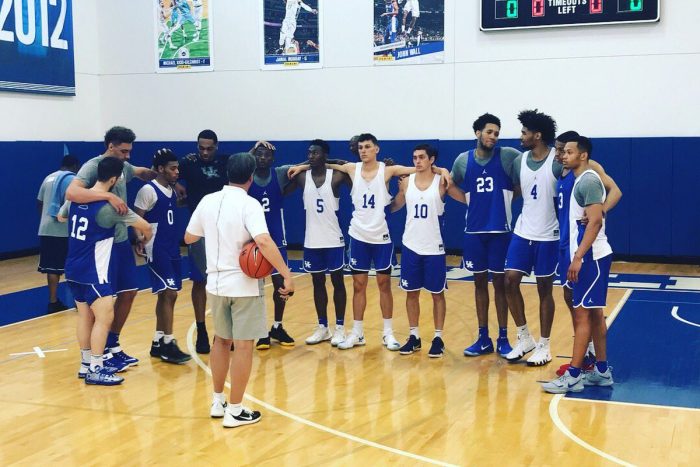

Commitment and expectations
🕐 5 minute read
A commitment is generally defined as a pledge to a cause or activity you intend to satisfy. Commitments will take up a portion of your time and require certain sacrifices to fulfill your responsibilities. As adults, this shapes your reputation, but in youth basketball this is where things get complicated!
If your child makes a commitment to his travel basketball team and he has two practices per week, what is the appropriate expectation of results from a parent’s perspective? Should your child show improvement after two weeks? Two months? Should he be draining three pointers by his third game?
It’s hard to have a sense of what to expect unless you can relate it to real life. The truth is, basketball is like everything else. You get out what you put in!
Real life lessons
We pride ourselves on teaching our athletes life lessons through the game of basketball. So here is a real-life analogy to better digest all the hoops talk:
Imagine your child has 3 hours of math classes from Monday through Thursday with an exam on Friday. He does not look at the material again until the test, is not fully invested in the subject and you receive an email about his grade Friday evening. Do you expect to see an “A” in your inbox?
If your child is naturally inclined to understanding algebra, then perhaps the answer is yes. But unless he/she is a math savant you should expect a “C” average throughout the year. He cares about math an average amount. He commits an average amount of time to prepare. His score will always be average.
On the other hand, if your child spends another hour each night studying for this exam, asks the teacher for advice on how to improve and falls in love with the learning process you will likely see better results. The likelihood of a 4.0 GPA is much higher and opening that email will bring you less anxiety!
The fact of the matter is, we love basketball because of its correlation to real life situations. True commitment brings better results. Maybe not every time, but far more often than not.
Where Coaching comes in
Determining the value of a commitment is difficult without understanding where your expectations lie. Coaches are here to provide you with those expectations and their integrity is crucial. Find a coach who will tell you the truth and is willing to tell your child the same.
The truth may be that your child isn’t capable of achieving an “A” equivalent grade on the basketball court due to his lack of commitment and/or his physical attributes. Although this may be difficult to accept, perhaps the truth needs to be told more frequently, for the player’s sake. That being said, a good coach should be able to bring your dedicated student athlete’s basketball GPA up quite a few points!
Players should be able to get out what they put in if the program is run efficiently. Athletes who are disciplined and dedicate hours to basketball, outside of their scheduled programs and practices, will see identifiable improvements. Athletes who come to practice, give their best, and are eager to learn should improve as well, just a bit less.
Players who are not interested in improvement and do not commit to the team should not expect great results on the court. We advise parents to follow how much their players invest in the game and coaches should tell players and parents what they can expect in return.
“Find a coach who will tell you the truth and is willing to tell your child the same.”
The right fit
If your child is head and shoulders above his teammates from a skill standpoint, perhaps he needs a change of course. A modification may also be in order if he is no longer improving or enjoying the sport. Instances such as these are not a lack of commitment, but rather a part of growing up.
If your child is learning, visibly enjoying the experience and you’ve found an honest coach…commit. Some players just want to play basketball to enjoy it with friends. Others dream of the big stage. These aspirations require different levels of commitment and should be treated as such.
When everything on the court, in the classroom and in life is deemed a priority, then nothing will ever actually take precedence. Find value in understanding your child’s primary focus and you will likely find better results!
